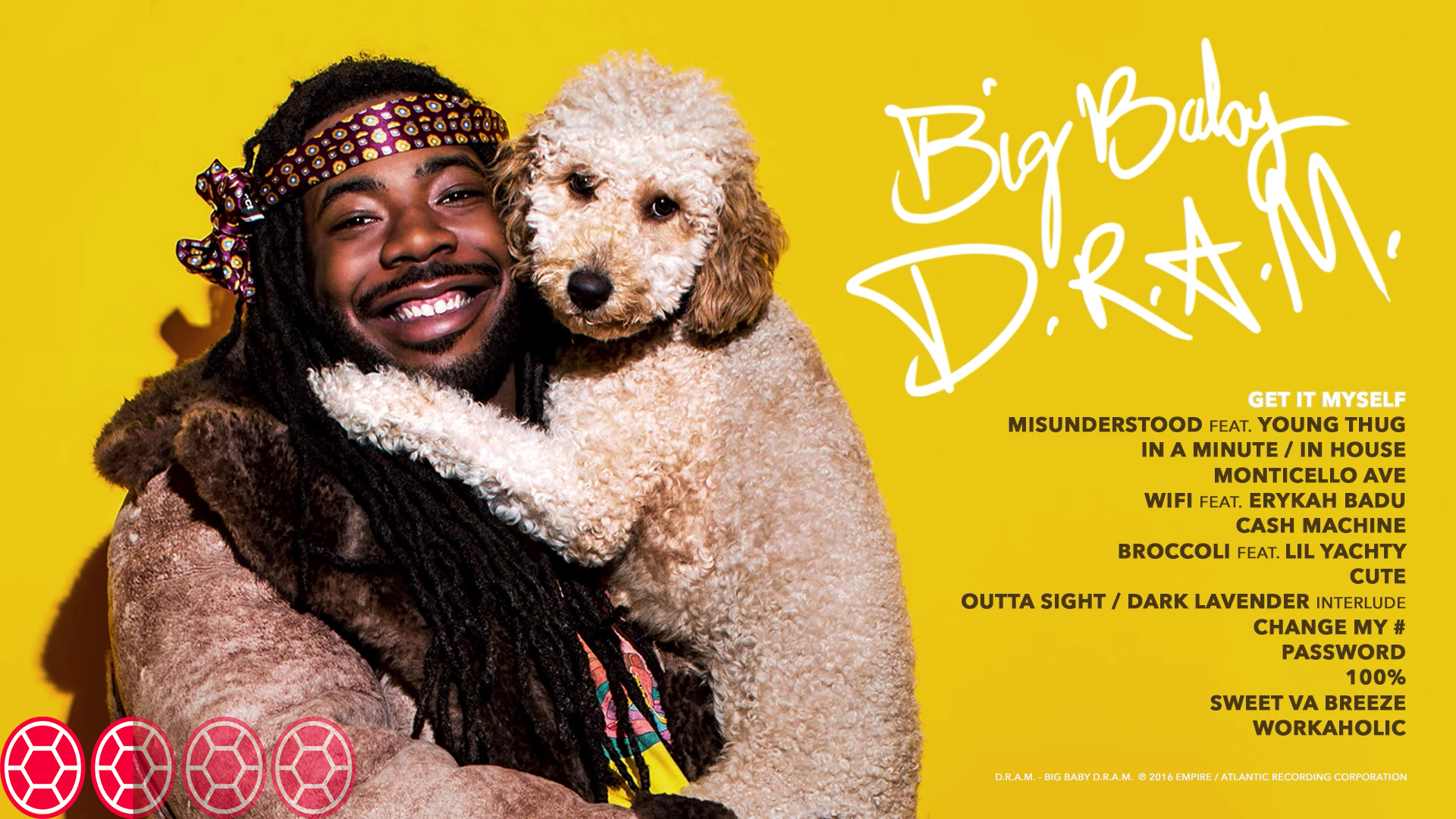In his debut studio album Big Baby D.R.A.M., Shelley Marshaun Massenburg-Smith, better known by his stage name D.R.A.M., attempts to combine his style of rap with slower, more melodic beats, reaching for a sound that doesn’t really work for the album as a whole but does create something interesting in a few songs.
D.R.A.M. — also an acronym that stands for “Does. Real. Ass. Music.” — incorporates elements of house music, rock, jazz and soul into a rap record. He also uses a form of rapping largely referred to as “mumble rap” that gained its name because the artists’ lyrics are often difficult to understand.
The mumble rap, coupled with slow beats present in many of the songs, leads to tracks that feel crowded and overdone. There is also a repetitive nature to many of the songs, which causes the album to feel dragged out.
As a whole, Big Baby D.R.A.M. does little to impress. The album starts off slow with songs such as “Get it Myself” and the second half of “In a Minute/In House,” both of which go on for too long and struggle to engage the listener. Add in tracks such as “Misunderstood,” which is a series of repeated auto-tuned vocals, and the listener is left with a dull first half that leaves much to be desired.
One bright spot in the first half of the album is “Monticello Ave,” when Massenburg-Smith shows off his flow sans-mumble rapping over a more controlled beat. This makes the song more enjoyable and easier to listen to.
The middle of the album is by far the best, with tracks such as “Cash Machine” and “Broccoli,” which make the album worth listening to.
“Cash Machine” picks up the pace of the album while still keeping the piano undertones, allowing it to fit together well with the other songs in the opening half of the album. I still found myself thinking that the song should be over around the two-minute mark, but that is because the end of the track is just the same few lines over and over again.
“Broccoli” is one of the lone bright spots on an album that struggles to maintain the listener’s attention throughout. The song is both a house and club hit with a beat that works with the rapping styles of Massenburg-Smith and featured artist Lil Yachty.
After “Cute,” a track that finds success from its pounding beat, the album reverts back to the issues it had in the first half. “Outta Sight/Dark Lavender Interlude” continues far past a point of being enjoyable; something the 30-second lull in the middle of the song doesn’t help.
After “Change My #,” another track that stretches on for a minute longer than it should have, the second half of the album flows a lot better from track to track. Both “Password” and “100%” showcase Massenburg-Smith’s vocals more than any of the other songs, providing an interesting contrast to the rest of the album.
The album closes with the bonus track “Workaholic,” which combines some of the record’s best elements. The piano undertones present in “Misunderstood,” “Cash Machine” and “100%” make an appearance again in “Workaholic,” as does the faster pace Massenburg-Smith uses in “Broccoli” and “Monticello Ave.”
Overall, Big Baby D.R.A.M. falls short in a lot of areas; the album does not flow well from track to track and many of the songs are overproduced or longer than they should be. At least “Broccoli,” “Cash Machine” and “Workaholic” provide relief on a project that is otherwise hard on the ears.
1.5/4 Shells



